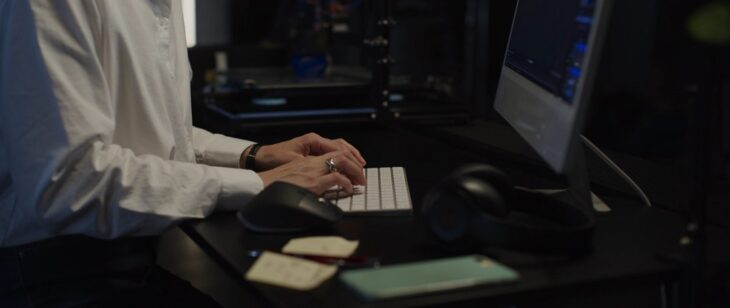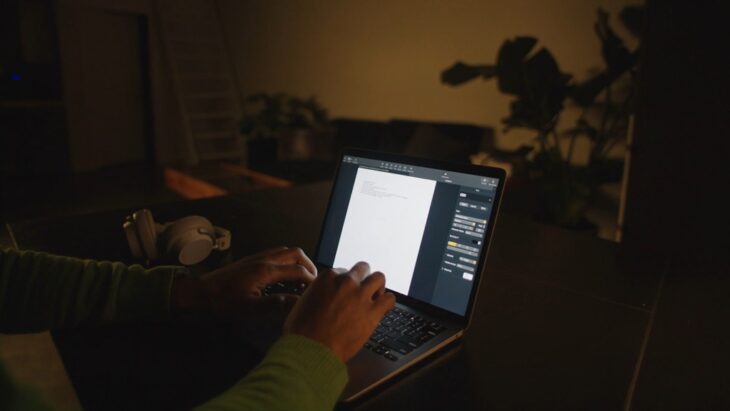Freelance web design in 2025 has reached a new level of professionalism and expectation.
Clients no longer hire generalists who can “do it all” but instead seek specialists who can deliver precise results that align with their industries.
Shifts in global economics, rapid technology evolution, and AI-driven tools have reshaped what clients demand.
The freelancer-client relationship is now built on trust, transparency, and consistent delivery, as freelancers evolve into strategic partners rather than task executors.
When you know all this, it makes perfect sence to take a look at what the clients can expect from service providers in 2025, when it comes to web design.
Table of Contents
Toggle1. Specialization Is No Longer Optional

Generalist designers are finding fewer opportunities as clients look for experts with proven industry-specific skills.
Companies want freelancers who understand their niche, healthcare, SaaS, or ecommerce, and can apply tailored design principles to solve precise business challenges.
Andy Strote’s advice about organically forming a niche is more relevant than ever, encouraging designers to refine their craft and focus on areas they enjoy and excel in.
Specialized designers can speak the client’s language and anticipate needs before they arise.
Those working in B2B SaaS might master complex user dashboards, while ecommerce specialists refine checkout flows for conversion optimization.
Success in 2025 relies on precision, not generalization, and freelancers who define their expertise will attract clients seeking focused solutions.
2. Professionalism and Process Are Deal-Makers

Freelancers are now expected to operate like small agencies with defined systems, clear communication, and reliable contracts.
Running freelance work like a business is no longer optional. Contracts, estimates, and payment schedules must be non-negotiable.
Clients expect transparency before work begins. Key expectations include:
- Detailed timelines that outline delivery phases.
- Clear revision limits to prevent scope creep.
- Defined deliverables with measurable outcomes.
When these processes are visible and enforced, freelancers project authority and reliability.
Organized communication and consistency transform one-off projects into long-term relationships based on trust.
3. Thought Leadership & Education Add Credibility
Freelancers who teach, write, or publish online resources command respect.
Sharing expertise through blogs, tutorials, or online courses builds trust with potential clients.
Elegant Themes recommends monetizing knowledge while positioning yourself as an authority in your field.
Becoming a consultant instead of just a designer changes the conversation with clients.
Instead of simply building websites, freelancers guide business owners toward digital growth strategies.
Creating helpful materials, such as diagram maker examples or process infographics, demonstrates capability and thought leadership.
Educating clients reinforces authority and often leads to repeat projects or referrals.
4. Value-Based Pricing & Transparent Money Talk

Charging by the hour has become outdated in 2025. Clients expect value-based pricing models that reflect results, not time spent.
Projects priced on impact, like conversions, engagement, or brand growth, demonstrate confidence and competence.
Clear money discussions early in the process prevent misunderstandings.
Freelancers now present detailed estimates, scope clauses, and structured payment milestones.
Such transparency reassures clients that their investment is managed carefully. Protecting both sides of the transaction is vital for sustainable collaboration.
Value-focused pricing turns freelancers into strategic partners instead of task-based contractors, establishing mutual respect and long-term partnerships.
5. Recurring Revenue Models Are in Demand
Clients increasingly prefer freelancers who can offer continuity.
Ongoing maintenance, hosting, and update services have become the standard for serious professionals.
Elegant Themes highlights the benefits of offering maintenance and hosting packages, where freelancers transform into long-term partners rather than one-off hires.
Popular models include:
- Monthly retainers for design and maintenance updates.
- Subscription-based services that include hosting, backups, and analytics reporting.
Freelancers who structure recurring revenue packages build predictable income streams and stronger relationships.
Clients value consistent communication and proactive improvements to their sites rather than starting fresh with new contractors every few months.
6. Portfolio First, Personality Second

Online presence has become a professional necessity.
Clients now evaluate freelancers by portfolio quality before any conversation begins.
Elegant Themes suggests showcasing not just visual designs but also process documentation and tangible outcomes.
Elements that impress potential clients include:
- Testimonials from verified clients.
- Ratings and engagement on Behance, Dribbble, and LinkedIn.
- Case studies showing problem-solving and measurable results.
A well-designed portfolio communicates expertise faster than any pitch.
Personality still matters but serves as a complement to results and reputation.
Designers who maintain updated, visually strong portfolios are seen as reliable professionals ready for serious work.
7. Clients Expect Full-Stack Solutions
Modern clients rarely separate design from development or optimization. Full-stack delivery, design, development, SEO, maintenance, and hosting are expected.
Tools like Divi and Divi Dash allow freelancers to manage multiple aspects efficiently and deliver a seamless end product.
Added-value services that impress clients include:
- Brand kits and visual identity systems.
- Performance optimization for faster load times.
- Hosting and security management.
Clients value convenience and want a single expert capable of handling their online presence from concept to launch.
Offering full-service solutions increases project budgets and fosters longer partnerships.
8. Responsiveness and Communication Are Top Priorities
Clients prioritize reliability and communication above almost everything else. Missing deadlines or ignoring messages can destroy trust instantly.
Strong communication doesn’t mean being online 24/7 but maintaining consistent updates through organized channels.
Asynchronous platforms like Slack, Notion, or email help maintain workflow clarity without constant interruptions.
Freelancers who provide clear progress reports and updates are seen as trustworthy, even during challenges or delays.
Timely communication is a sign of respect and professionalism that keeps projects moving smoothly.
9. AI Integration & Fast Prototyping Are Must-Haves

AI tools have become integral to modern web design.
Designers now use platforms such as Divi AI, Webflow AI, and ChatGPT-assisted mockups to accelerate creative output while maintaining quality.
Clients in 2025 expect high-quality results delivered quickly, and AI-assisted workflows make that possible.
Quick prototyping enables faster feedback cycles and more efficient revisions. AI accelerates layout design, generates color palettes, and even suggests SEO-optimized content.
Efficiency no longer sacrifices creativity; in fact, it enhances it. Freelancers who master these tools deliver more value and meet modern turnaround expectations without compromising their artistic standards.
10. Ethical Design and Accessibility Are Non-Negotiables
Ethical design has evolved into a defining factor of professionalism.
Clients expect websites that reflect inclusivity, social responsibility, and compliance with accessibility standards such as ADA or WCAG.
Design with purpose is also gaining traction. Clients increasingly favor sustainability, minimalism, and transparent data practices.
Projects promoting responsible consumption and awareness attract attention in competitive markets.
Freelancers who emphasize ethical principles position themselves as modern professionals aligned with current global values.
The Bottom Line
Freelance web design in 2025 reflects a mature, professional, and client-driven environment.
The balance between creativity, structure, and technology defines success.
Adaptability, specialization, and consistent communication are essential traits that separate average freelancers from industry leaders.
Clients seek reliability, transparency, and partnership: values that reward those ready to evolve with purpose and precision.



